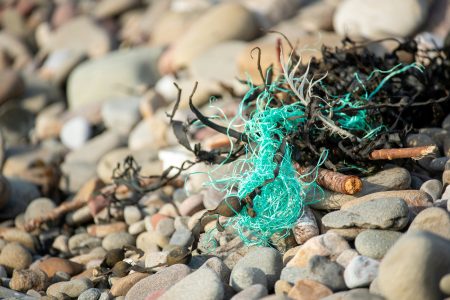
The marine environment as well as the fisheries sector face a number of issues such as biodiversity loss and climate change as well as challenges arising from political matters like Brexit. Ensuring that marine ecosystems are restored and protected effectively will not only preserve the incredible habitats and species that are found in the EU but it will also help to safeguard marine food systems so they can continue to provide goods and services to EU citizens.
Last year the European Commissions released a package of 4 reports on the state of EU fisheries. One of these was the EU Action Plan: Protecting and Restoring Marine Ecosystems for Sustainable and Resilient Fisheries.
This Action Plan aims to achieve a more consistent approach in the implementation of the EU’s environmental and fisheries policies and to show that EU Member States will act on the promises which they have agreed at EU and international level, including COP15. This Action Plan would help the EU deliver on the EU Biodiversity Strategy of protecting 30% of EU seas by 2030 and having 10% designated as strictly protected. The Action Plan asks Member States to put together national roadmaps highlighting their progression towards hitting these targets and the actions highlighted within it. One of the actions in the Commission’s Action Plan is to phase out bottom trawling in marine protected areas designated to protect the seabed by March 2024 and phase out bottom trawling in all marine protected areas by 2030. The deadline for these roadmaps is March 2024.
However, on the 18th of January, the Members of the European Parliament (MEP’s) in Plenary approved a report from the PECH Committee which backtracks on many of the actions highlighted in the Marine Action Plan in regards to destructive fishing practices. This report was drafted exclusively by the fisheries (PECH) Committee without input from the environmental (ENVI) Committee and the report’s recommendations are worrying. The report labels bottom trawling as a ‘sustainable’ fishing practice which goes against established scientific evidence showcasing the damaging impacts this practice has on the marine environment as well as negatively affecting climate change mitigation. It states that bottom trawling can be compatible with achieving seabed conservation objectives and that the effect of trawling is variable. We feel that these recommendations go against science and against plans to halt marine biodiversity loss.
On the 31st of January the UK announced several new measures to protect its marine environment. They have banned bottom trawling on reef and rock habitats within 13 MPA’s totalling an area over 4,000km2. The UK’s total marine area protected from bottom trawling is now at 12%.
This is a harsh reminder to us here in Ireland, that we are far behind when it comes to effectively protecting our maritime area. Last year a ban on vessels over 18m trawling within 6 nautical miles of the coast was lifted and has still not been reinstated. Currently none of our MPA’s have bottom trawling explicitly banned in their management plans. Last year around 2km2 was closed in Dundalk Bay to bottom trawling but this is nowhere near enough to protect and restore our important seabed habitats and the species which rely on it.
We call on the Irish government to complete their fisheries roadmaps for the EU Marine Action Plan in time for the March deadline. Within this roadmap there should be clear actions which can be implemented so we can start reducing our footprint on the seabed and phase out bottom trawling. Ecosystem and climate Impact Assessments should be conducted on Irish fisheries to assess the impact of different fishing practices on carbon sequestration, Co2 emissions, level of bycatch of non-target species and seabed integrity. We are still waiting for the national MPA legislation to be released and within this there should also be a clear and ambitious management framework for MPA’s stating what will be protected, how it will be protected and which government agencies will be in charge of monitoring and implementation.
If you would like to take action to protect and restore our marine life sign Fair Seas petition now calling on the Irish government to enact a strong marine protected area law without delay https://only.one/act/30×30-ireland